Movie Review – Duel
Principal Cast : Dennis Weaver, Jacqueline Scott, Eddie Firestone, Lou Frizzell, Eugene Dynarski, Lucille Benson, Tim Herbert, Charles Seel, Shirley O’Hara, Alexander Lockwood, Amy Douglass, Carey Loftin.
Synopsis: A business commuter is pursued and terrorised by the malevolent driver of a massive tractor-trailer.
********
Before he became famous for directing cute little aliens lost on our world, or sharks pursuing people through the open ocean, or even a dusty, ageing archaeologist, Steven Spielberg was cutting his teeth in the cheap-n-nasty world of television. After helming episodes of shows such as Night Gallery, Counselor At Law and Columbo, Universal tapped him to direct four made-for-television films, the first of which would become Duel, based on a short story by Richard Matheson (who would write the screenplay here). Screened on America’s ABC network in November of 1971, Duel would receive both critical and commercial acclaim, prompting Universal to give the film a theatrical release internationally (featuring new footage shot after its initial broadcast!) and in the years since it has become one of Spielberg’s most influential and popular early works.
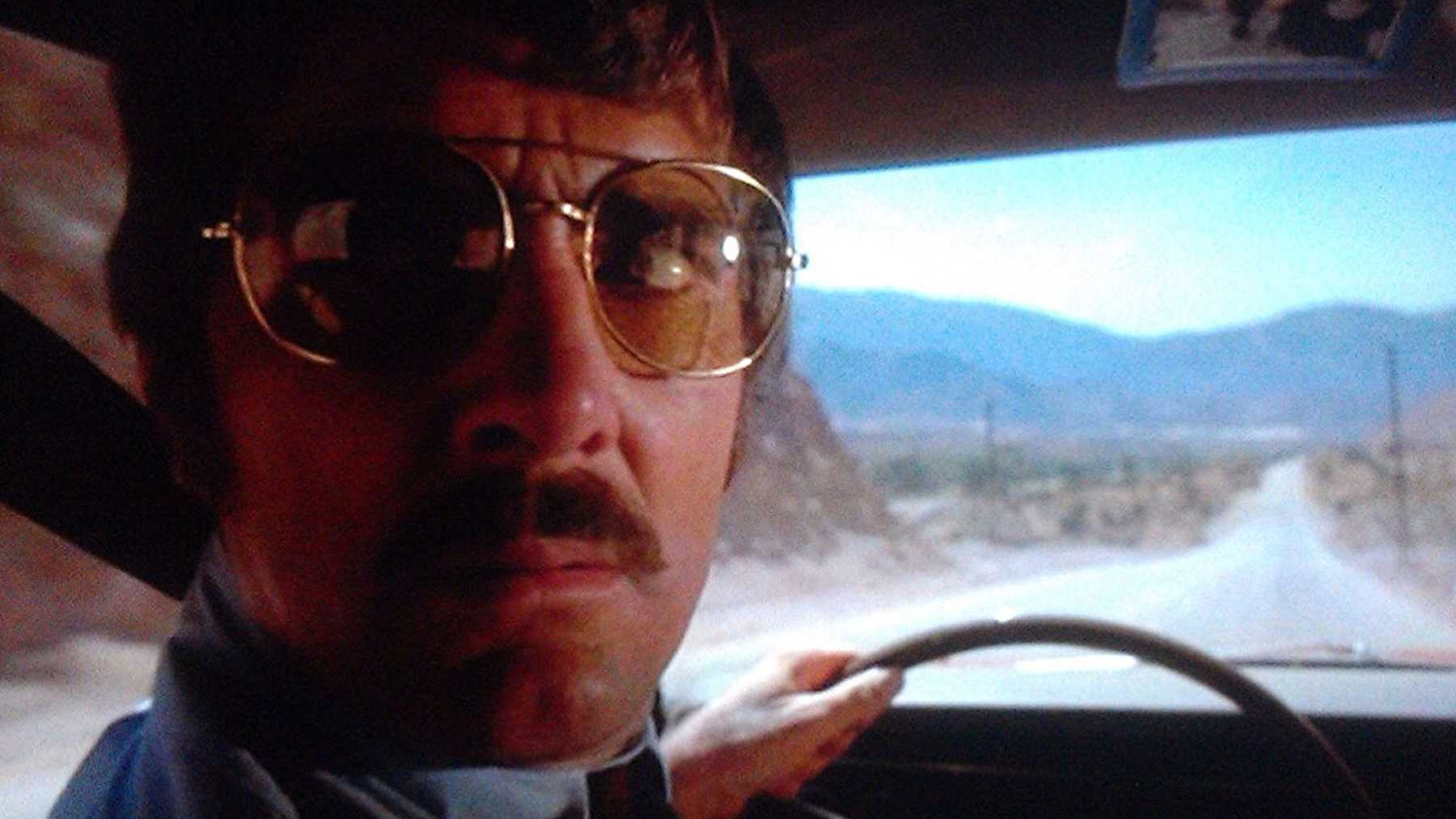
Middle-aged salesman David Mann (Dennis Weaver) leaves his home in the city and, driving a bright red Plymouth, travels into the Californian desert on his way to visit a client. Along the way, he has some troubling interactions with a semi-trailer, initially passing it off as road rage or the actions of a loose cannon. Things, however, take a sinister turn when the driver of the semi starts to play a deadly game of cat-and-mouse with Mann, stalking and goading him into an increasingly frustrated and paranoid mindset in order to kill him.
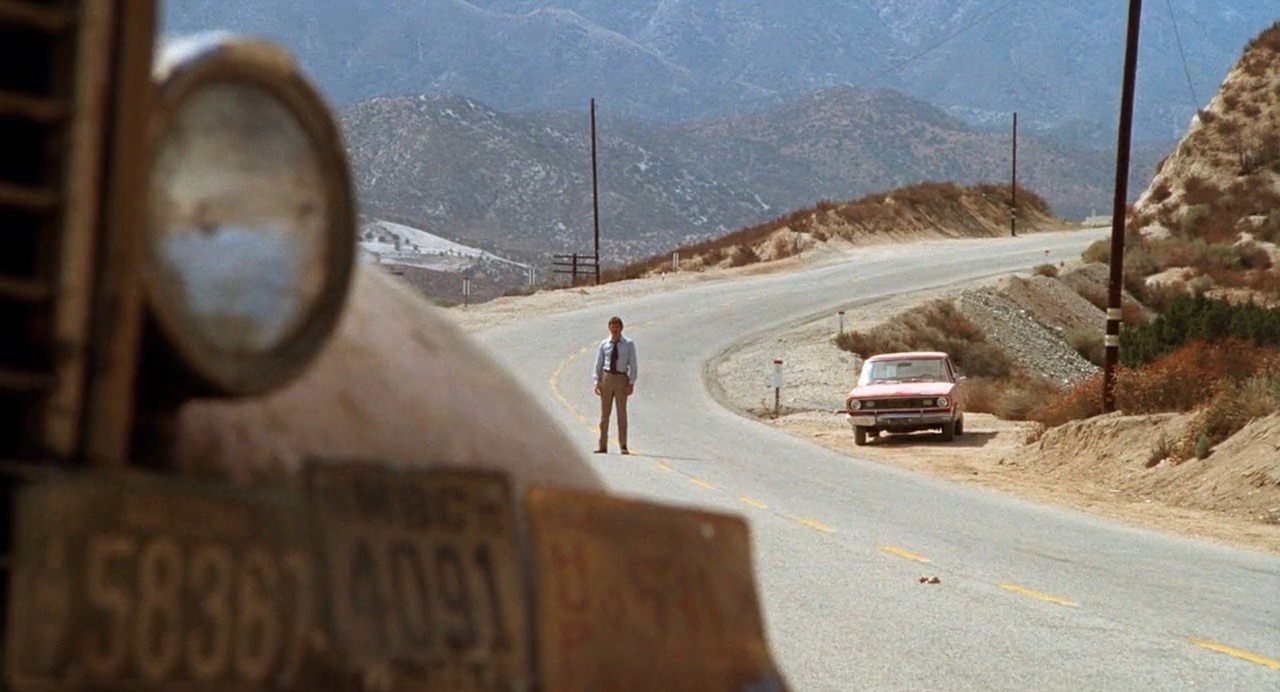
There’s a reason Duel remains Spielberg’s most memorable pre-feature-film works. Duel perfectly encapsulates the director’s singular style, his virtuosity with camera, his specificity in editing alongside an appropriate score, and his sheer economy of storytelling in seemingly the most benign of shots. It also helps that the story is instantly accessible and demands little exposition: it’s a man on the highway being chased by a giant truck. C’mon, they don’t come easier than that. Matheson’s short story is expanded into a white-knuckle ride into the Californian desert, a wilderness of hopelessness and desperation as man versus machine takes on a whole new meaning.
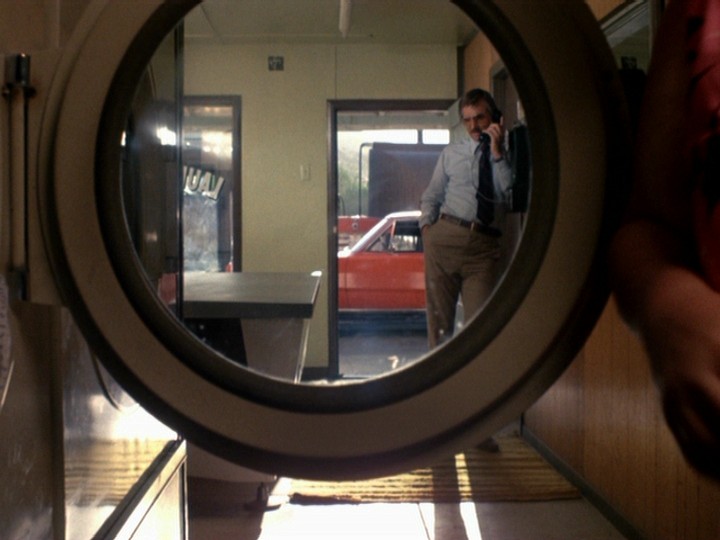
At its most basic, Duel is your archetypal man-in-a-room scenario, in which the story occurs within a limited setting and/or with limited characters, focusing on character-driven plotting rather than a more elaborate tableau. Duel cleverly upends this to a degree, having the eponymous “man”, Weaver’s David Mann, spending a great deal of his time in his car – which allows him to travel a great distance – being hounded by the enormous, malevolent-looking vehicle of death pursuing him. Weaver’s Everyman character isn’t given a lot of depth aside from a brief interaction over the phone with his wife (Jacqueline Scott) and various fuel station attendants and truckstop denizens, so we don’t get to really know who he is as a person or whether he even deserves the attention he gets or not. No, the film focuses on building an unrelenting sense of dread, as Mann’s increasing paranoia about the motivations of the truck driving psychopath – whom we never see save for brief wide shots and the occasional boot or arm – ratchet up the tension as their game of cat-and-mouse becomes more and more tense. There are moments where Spielberg employs a voiceover by Weaver to give us Mann’s innermost thoughts in key scenes in the film (which, I admit, feel a bit naff today) but generally the story takes place in the moment, allowing the audience to draw our own conclusions. The motivations of the truck driver are never explained, only assumed, and the film’s churning climax might suggest some kind of supernatural or he’s-done-this-before underpinning, but not knowing why is among the film’s chief assets. It drives our curiosity and centralises our fear of the unknown within its withering grasp.
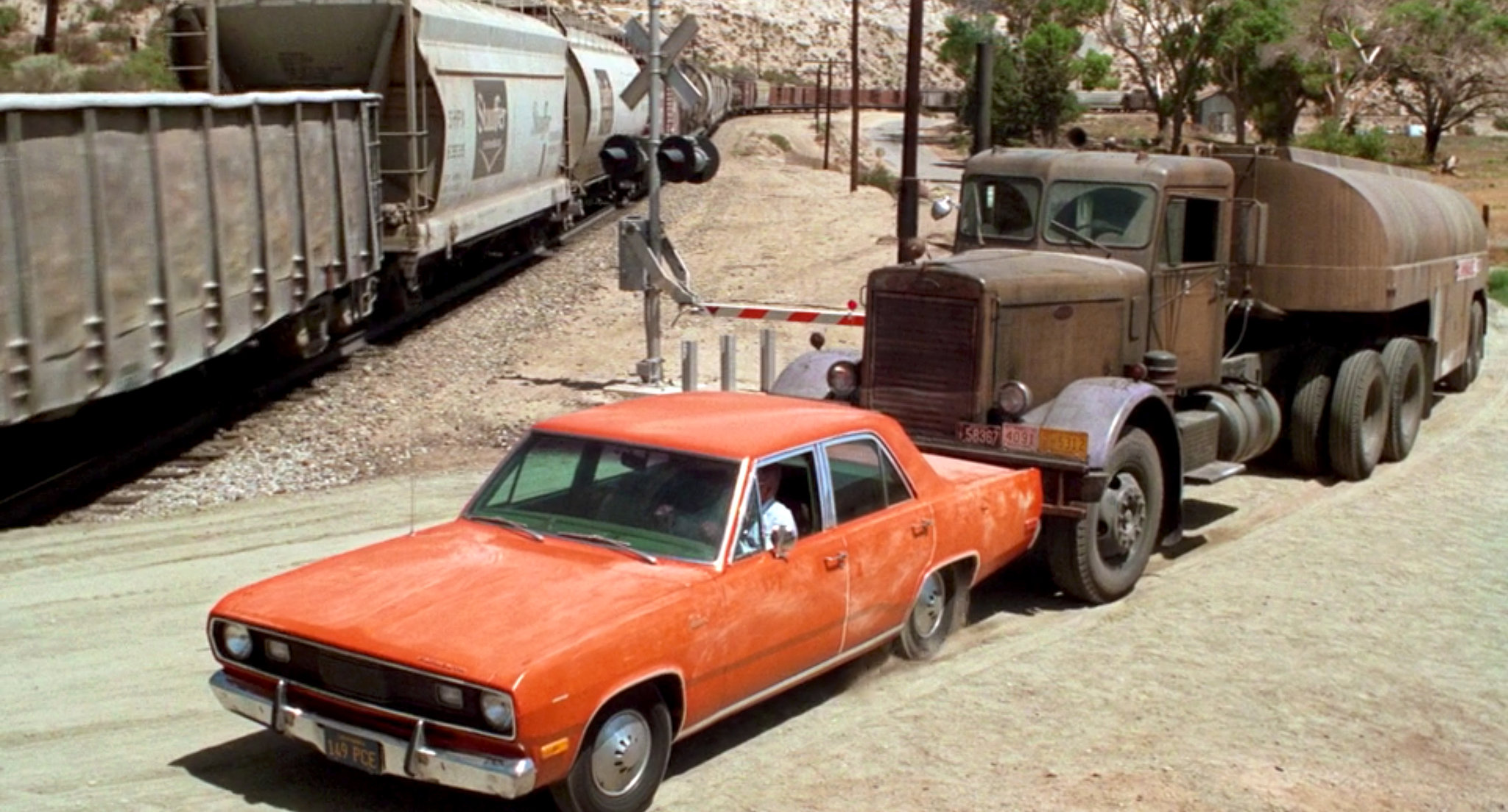
What stands out almost immediately is the sheer level of technical virtuosity on display. The Spielberg we have come to know and love arrived in Duel almost fully formed, from the sublime framing of each shot to Frank Morriss’ breathtaking editing. It’s as proficient a debut as you could ask for, a directorial statement of intent from a man who had yet to see a project land on the big-screen (which would occur several years later with The Sugarland Express in 1974) that remains indelible in every Spielbergian way. Given that the film revolves around two characters for the vast bulk of its running time, Spielberg keeps the camera moving in, out and around both the truck and Mann’s Plymouth throughout, keeping the audience uneasy – perhaps even a touch motion-sick – as the game intensifies. There are an enormous number of flourishes Spielberg brandishes with skill, from smash-cuts to rack-zooms to some sublime focus pulling (a few of the shots in Duel are actually slightly out of focus, perhaps an unintentional side-effect of the production having such a constrained shooting schedule); the sense of menace Spielberg achieves with a few vertiginous angles and use of framing to belie a malignant evil at work is astounding for what is basically a lifeless truck, although having Weaver become increasingly agitated throughout provides a bowline to this ability.
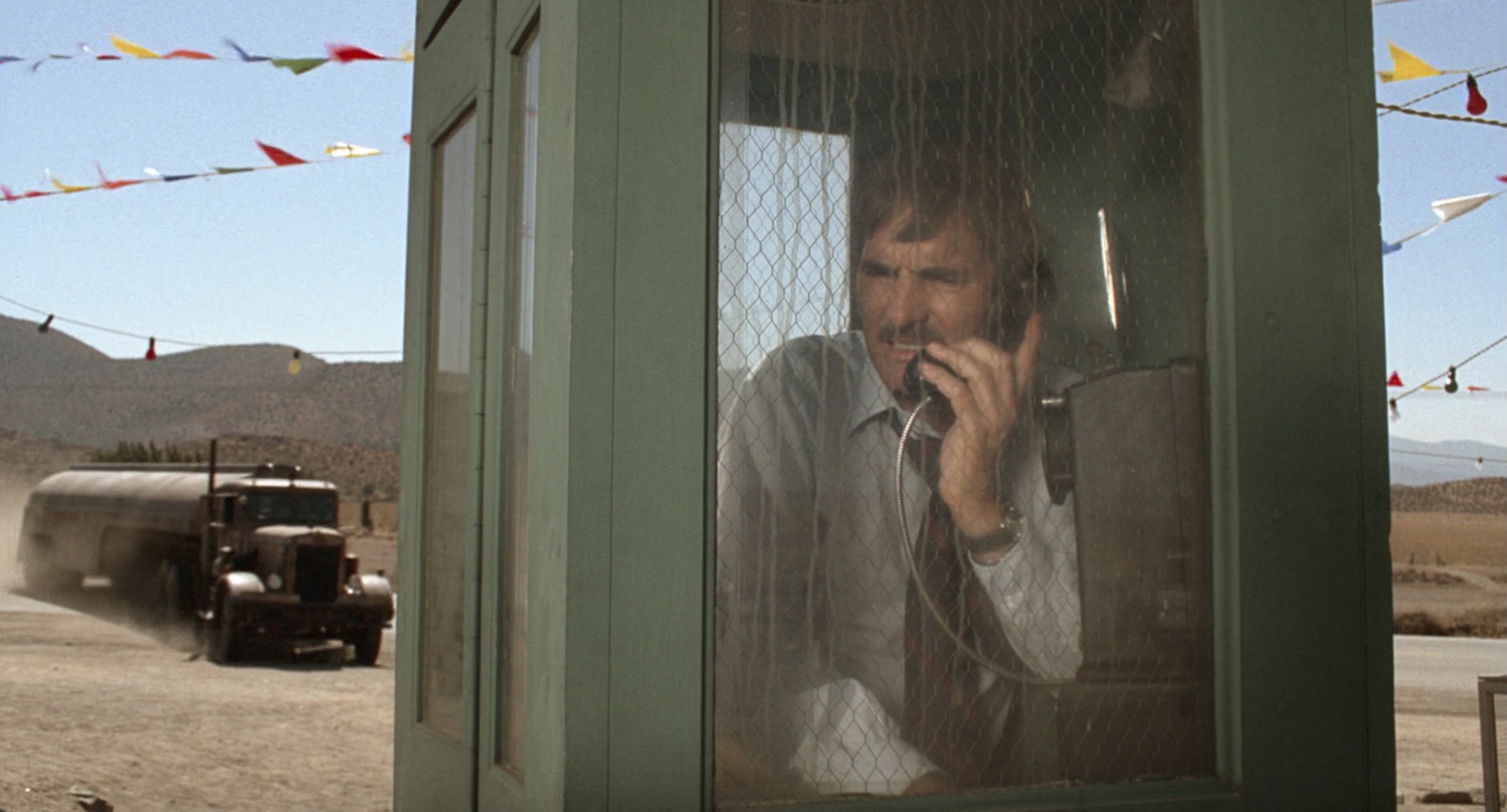
It’s hard to believe Duel was shot in a little under a fortnight. It’s equally difficult to believe it was edited in only ten days, and broadcast almost immediately after that. This isn’t a television movie, this is a full-fledged theatrical film, a high-octane white-knuckle thriller that captures the audience with its initial mundane premise (dude driving across the state) before transitioning into a slasher-film on wheels. Billy Goldenberg apes the work of Bernard Hermann’s iconic Psycho score with his percussive, string and synth infused themes, ably accompanying the visuals as a tense and effective score. Jack Marta’s evocative cinematography is also another highlight, turning the unforgiving Californian landscape into a true hellscape of desolation, isolation and intimidation for Weaver’s character; the perfect setting for an evil truck to do its thing. The stark red hue of the Plymouth was chosen specifically so it would stand out against the dusty browns and dull greens of the surrounding backdrop, with the truck, murky grey and speckled with grime, spewing its toxicity (both literally and figuratively) throughout its voyage across the movie. While the setting may not be the most beautiful at first blush, Spielberg makes it work through clever and simple uses of colour and framing.
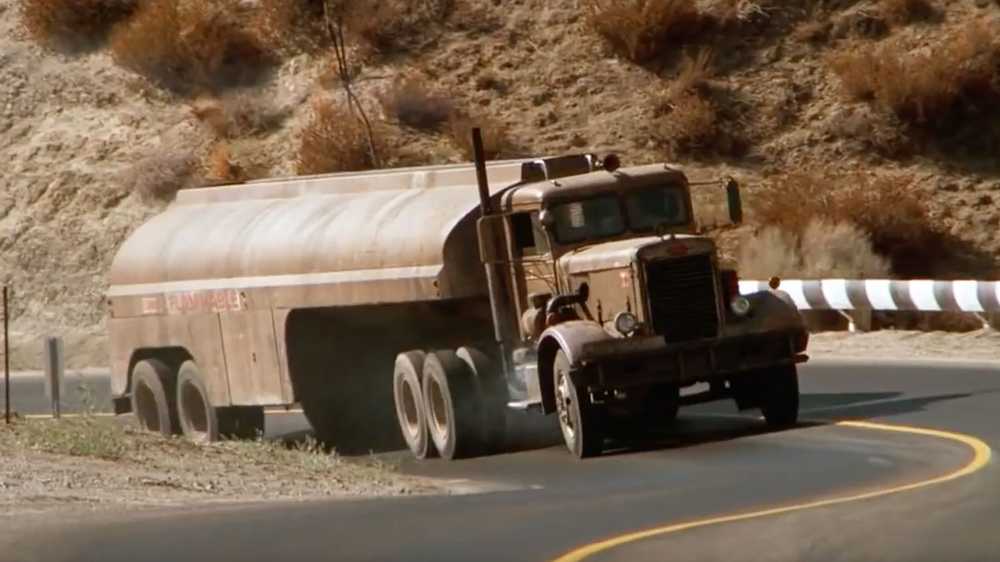
Duel remains a defining opening salvo to the any filmmaker’s career: the success of this film would see Spielberg make the transition to a feature film director – although the remaining made-for-TV films under his contract aren’t as well known, or liked – and it holds up largely due to the terrific Matheson screenplay (voiceovers excluded) and the director’s acute sense of intimidation and menace derived through what should be the most benign of scenarios. Led by a superb performance from Dennis Weaver, Duel’s unhinged atmospheric terror and growling dread are as potent today as is was fifty years ago. The motifs and iconography within the film continue to resonate down through the decades, reminding us that a simple story well told can be as memorable and effective as the most expensive blockbuster.


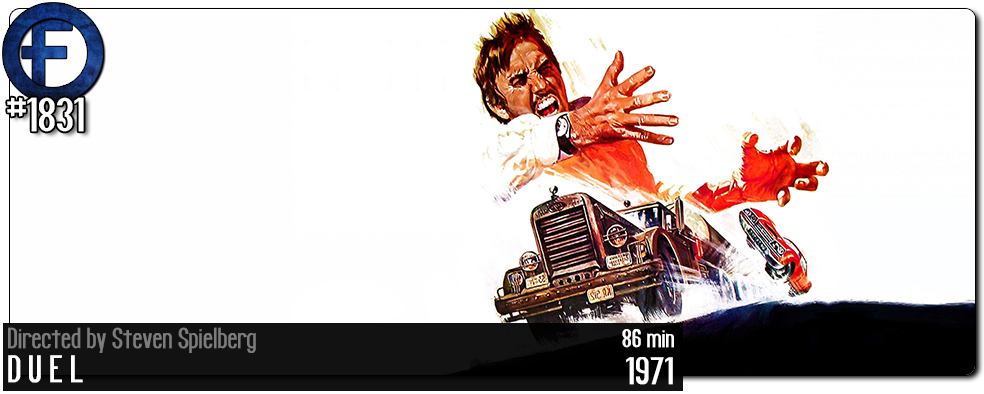
I love Duel. I really appreciate your analysis of Spielberg’s style and how it works here. This is every bit Jaws on the highway. I would add one thing, though. To me, Spielberg’s best asset is making the most of what he has to work with, or at least it was when he actually had to worry about budgets. In his case, it was the magic he and his team worked on truck. They never got the truck to actually go over 35 mph. However, they made it seem faster by shooting at low angles. Without that, we have a slow ass truck getting left in the wind and no movie to speak of.
I think it’s fascinating how well Spielberg’s early films work a lot better than his more recent big-budget event films. Amazing what restricting creative minds to a small budget can do, eh?